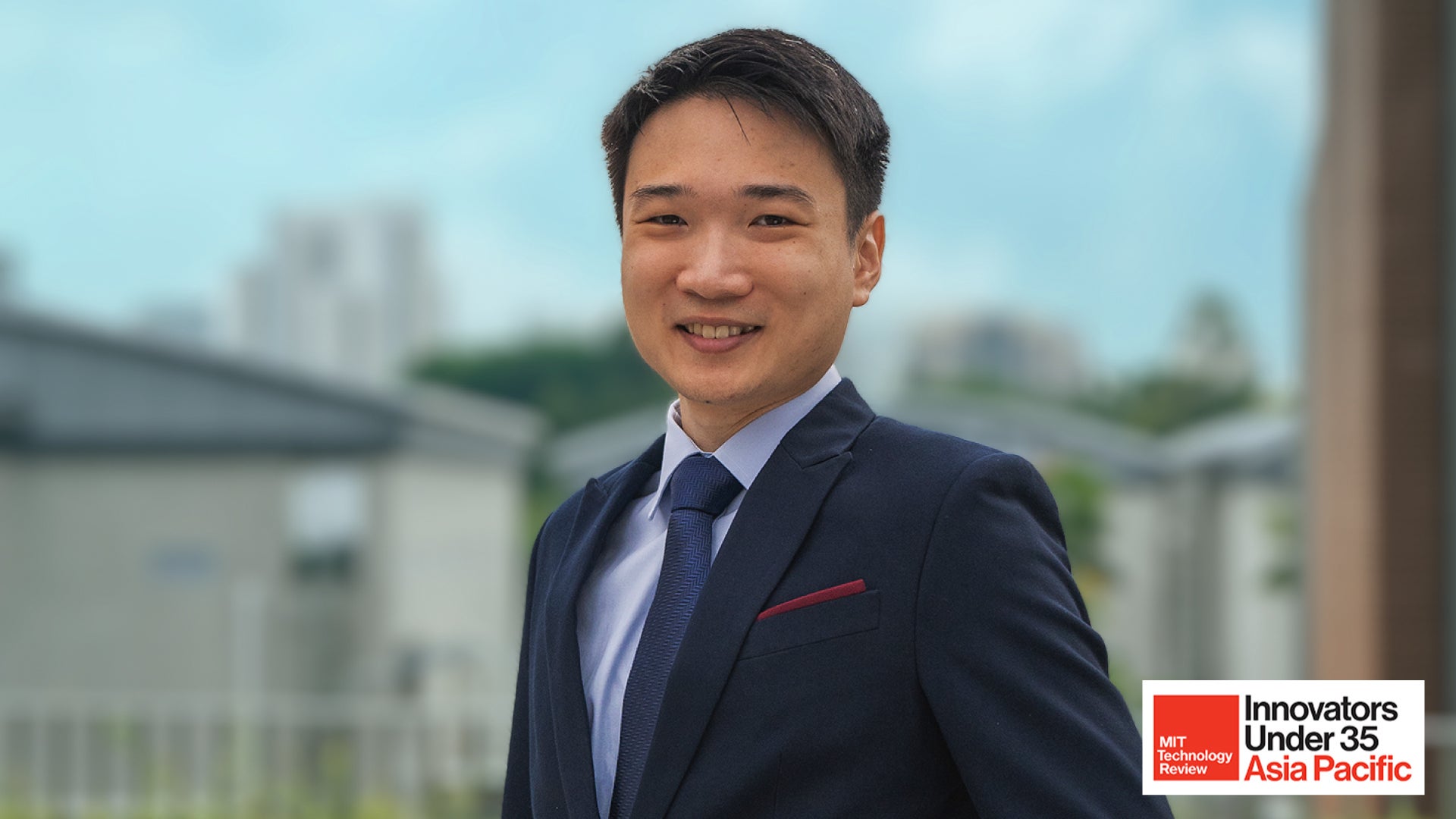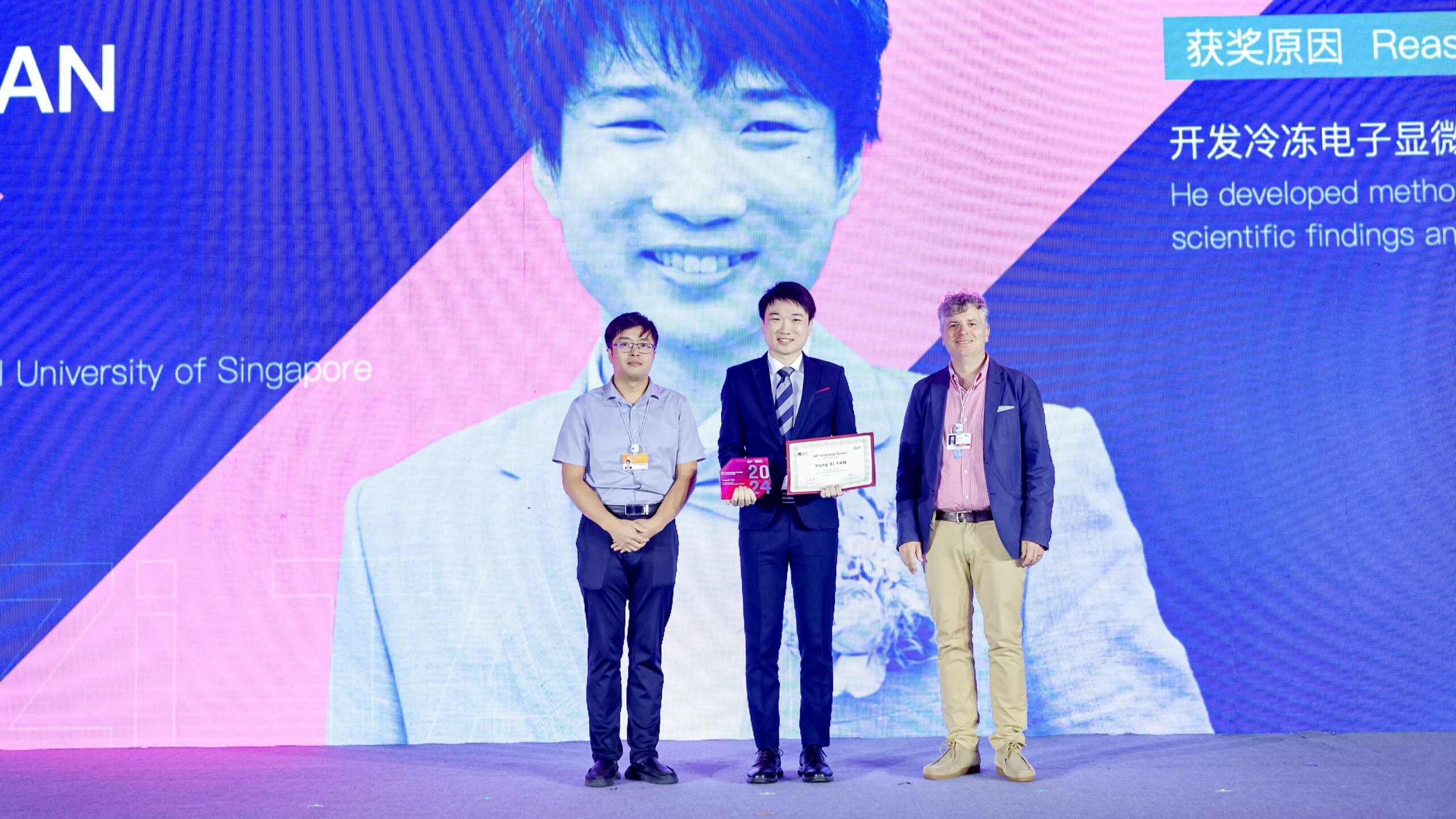NUS researchers recognised as Asia Pacific’s rising young scientists
September 26, 2024
Asst Prof Tan Yong Zi (Photo: NRF Singapore) named on the MIT Technology Review Innovators Under 35 Asia Pacific 2024 list.
Three NUS researchers have been commended on the 2024 edition of the MIT Technology Review Innovators Under 35 (TR35) Asia Pacific list in recognition of their remarkable accomplishments and contributions to the progress of science and technology.
The 35 honourees were introduced and conferred their awards at the Meet TR35 Summit 2024 during the 17th Pujiang Innovation Forum held on 9 September 2024. The TR35 Asia Pacific list recognises these young science and technology trailblazers who have shown exceptional innovation and entrepreneurial acuity, and whose discoveries are expected to have profound impact in their respective fields.
These luminaries were honoured under five categories: Inventors who develop new technologies and startups; Pioneers who advance fundamental research; Entrepreneurs who launch tech ventures; Humanitarians who use technology to enhance opportunities or advocate policies; and Visionaries who discover new applications for existing technologies.

Asst Prof Tan Yong Zi (centre) is advancing the frontiers of cryo-electron microscopy to analyse the high-resolution protein structures implicated in human diseases, such as tuberculosis, malaria, and cancer.
Assistant Professor Tan Yong Zi:Pushing the boundaries of protein structure imaging for potential drug targets
Cryo-electron microscopy (cryo-EM) is a remarkable tool that allows scientists to view the intricate landscape of the microscopic world. It provides detailed 3D images of the molecular components of the cell, such as its DNA, RNA, and proteins. Capturing these snapshots can reveal key information about how these components interact and function in different diseases.
Using innovative cryo-EM methods, Assistant Professor Tan Yong Zi and his team from the Department of Biological Sciences under the NUS Faculty of Science constructed and revealed the protein atomic structure models that are the key to understanding the evolution of organisms, how diseases spread, and how to design targeted drugs against these diseases.
Asst Prof Tan earned a spot on this year’s TR35 Asia Pacific list as an Inventor for his cutting-edge discoveries that helped to refine cryo-EM methods for protein structure analysis.
Asst Prof Tan and his collaborators pioneered the tilted data collection strategy to capture more views of protein samples with preferred orientation problems. This strategy allowed him to solve the structures of 14 different bacterial ribosomal intermediates that can be targeted for antibiotic development. To diagnose the degree of preferred orientation present in a protein sample, Asst Prof Tan and his collaborators also developed a software, called 3DFSC, which is now an online web server widely used by structural biologists around the world.
Asst Prof Tan co-developed Back-it-up, a novel open-source cryo-EM grid freezing device that can be built at a fraction of the cost of conventional freezing device and is able to do time-resolved cryo-EM experiments. He and his collaborators also demonstrated that applying a mathematical correction called the Ewald diffraction sphere curvature correction was crucial for achieving high resolution in cryo-EM images of an adenovirus capsid sample.
“I am deeply honoured to receive this award, and I would like to acknowledge the continual support from my lab members, collaborators, mentors and NUS that has made this possible. I am also heartened to see that methods development is being recognised as an important pillar for advancing scientific progress,” said Asst Prof Tan.
Source: NUS News


